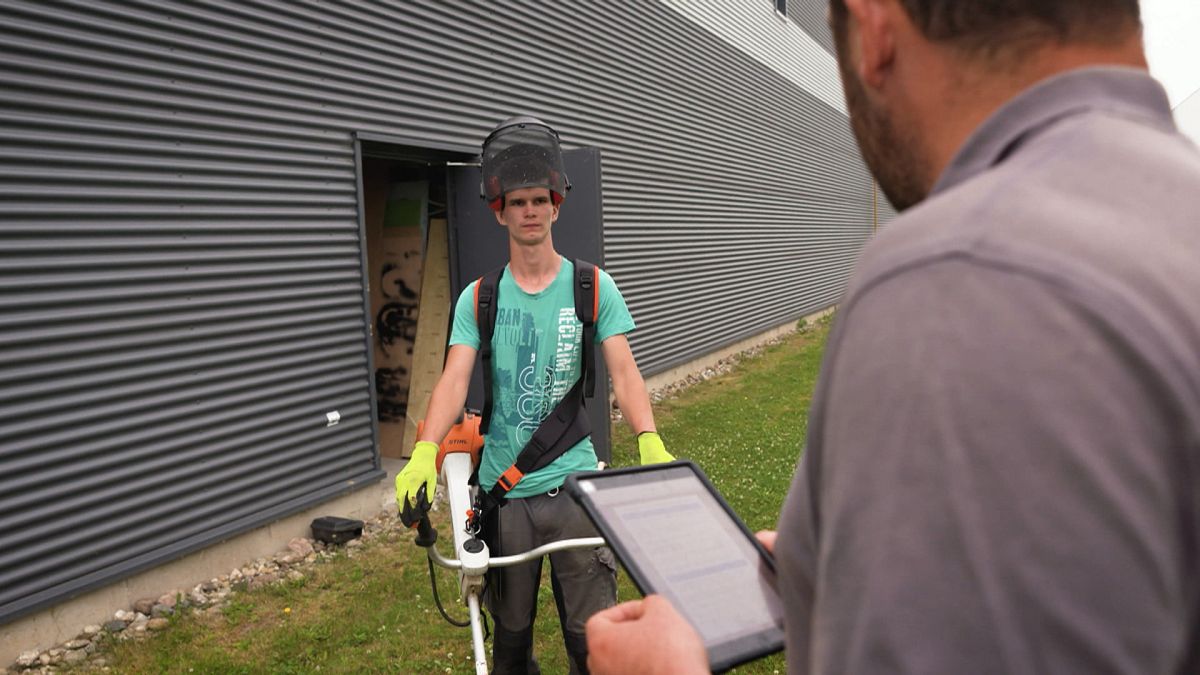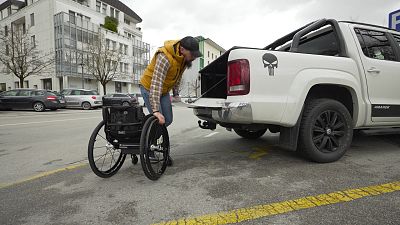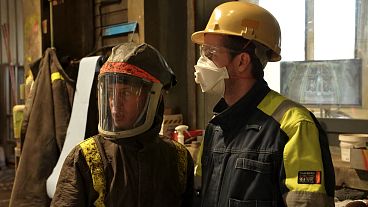Covid-19 has disproportionately affected young and seasonal workers. The EU has recently revamped Europass, a tool that can help people in their search for work
Unemployment across Europe has risen due to the coronavirus pandemic; It’s feared the jobless total in the 27-nation bloc could double next year, rising above 11 percent. And young people and seasonal workers have been particularly hit during the lockdown.
To help counter this, the European Union has revamped an initiative that helps job hunters find work anywhere in the bloc. It’s called Europass. Here’s a quick guide.
Europass links up European job seekers and employers across the 27-nation bloc. Its new and improved version was released on July 1.
The idea behind the new iteration is to simplify and update the Europass CV and other skills tools for the digital age.
This means that users will be able to create a personal profile on the online platform to describe their skills, and their learning and working experience.
Job seekers can store relevant documents in their personal online library and keep track of their learning and job applications.
They can also share a link to their e-profile with employers, recruiters and employment services for support and advice on their careers.
And they can access information on learning and working in Europe.
Most Europass users are in Italy, Portugal, Romania and Spain.
---------------------------------------------------
The International Labour Organization has warned about the serious impact the pandemic could have on the so-called lockdown generation.
Euronews met up with some young people, to find out if they had benefited from any measures taken at EU level, and to ask if they felt that more could be done.
We spoke to apprentices and young graduates in eastern France, close to Germany, to ask them what they think can help them find work.
We went to a cooperative that offers training in green spaces. Trainers have been using Europass tools for several years to follow up on skills acquisition, and to create detailed CVs that can be used all over Europe.
Sami, an apprentice landscape gardener, feels reassured by this system: "I think the Europass CV will help me find a job more easily, especially in Germany because there is more demand there. On the CV, the employer will be able to see immediately the skills that I have."
According to public employment services, mobility allows job seekers to access more offers, it is also something particularly sought after by recruiters.
Due to the lockdown, Hugo Bregeras, a chemical engineering student, couldn’t to do his internship in Germany. So he turned to permaculture in his region. This experience taught him to value complementary skills, which he thinks, will allow him to stand out.
"Here I can develop transversal skills, such as teamwork and problem solving, which are always appreciated in the job market," said Bregeras.
"Mobility is very very important and it is something that we absolutely have to highlight in our CVs because that is what makes the difference. All engineers speak English, so you have to know another language," he added.
The International Labor Organization says one in six young Europeans have lost their job since the start of the epidemic. And newcomers in the job market are directly affected by the hiring freeze.
In Metz, I met a young German girl who wanted to work abroad. She just got a job in human resources, in France.
Franziska Bulle, a HR and Communications Manager, said: It's been very difficult to find work during this COVID-19 period. I was really lucky to have found my job. And I have my CV to thank for that. Some time after I got my job, my employer told that it was very well done. They appreciated the fact that it highlighted my skills.
Here, and in all of Europe, Europass users will be able to directly search for training or a job on the new platform. What’s left to be seen is whether there will some good quality offers.
----------------------------------------------------------------
Nicolas Shmit, Commissioner for Employment and Social Rights, spoke to Euronews about Europass and the employment situation across the continent.
Euronews: We have a completely new platform, a new Europass CV. What is new about it?
Nicolas Schmit- Commissioner for jobs and Social Rights: Well, it's a new portal. It's very digital. It's much broader. It's quite easy to handle. We are living in a digital age now. We are promoting free movement of people in Europe. And while there are opportunities abound, they may not be in my home country, but somewhere else. And people need to be able take advantage of these opportunities. On the other hand, there are employers who are looking for people with certain skills, and there others offering training that could help an employee to take his or her career to the next level.
Euronews: Apparently, the most affected groups of the labour market are the young and seasonal workers. Can we speak about a lockdown generation compared with the lost generation of the previous crisis?
Nicolas Schmit: We have to prevent that. We have to do everything possible to not to have a lockdown generation because there is a risk that the young will be the major victims of this very special and unique crisis. We see that more than half of those who have lost their jobs in Spain, for instance, are young people under 35. Even in Germany, the numbers of young people, who have registered as unemployed, has now reached more than 250,000. So there is a big risk and we have to act quickly.
Euronews: Can you be more concrete about the measures? You mentioned, the minimum wage. We know that there was a proposal already before the crisis. So is it the time to push member states to to agree on that, to have something at a European level?
Nicolas Schmit: At the end of September, beginning of October, the commission will table its proposal. We cannot build a recovery on wage dumping on inwork poverty on people who very often have done the most difficult jobs during this crisis and by denying them the right to have decent wages. So it's it's really timely to have this debate on wages in Europe and specifically on minimum wages, but also on the right to have collective bargaining. I think collective bargaining has to be promoted and strengthened where it's weak.
The transition to the new digital era begins with a little help from Europass.



